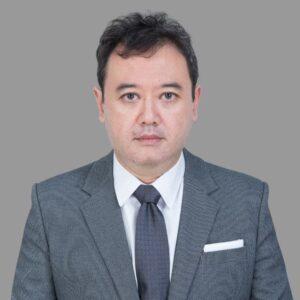 An interview with Vidano Kernem, Chief Operating Officer at The Academy of Culinary Arts Cambodia.
An interview with Vidano Kernem, Chief Operating Officer at The Academy of Culinary Arts Cambodia.
Shift 360 Foundation supported ACAC to undertake a large digitization project in 2020-21 – can you give us an overview of the project?
In 2020 ACAC partnered with Cambodian tech company Pathmazing to digitize and automate much of our internal processes – with the aim to be as efficient and productive as possible with staff time and funds available. We also wanted to ensure staff have easier access to data, and greater control to assist with organizational oversight and decision making.
In addition, the Government-imposed closure of the Academy during the early 2021 Covid outbreak in Cambodia prompted additional developments as we moved to teaching online-only.
As part of our initial project, we chose to adopt some ‘off-the-shelf’ products for improving elements of our internal systems, using the Odoo platform, but the real innovation has come in the bespoke apps created specifically for ACAC. These include our new Culinary ERP, and later a student-focused mobile app.
Regarding the introduction of online learning, we are using Microsoft Education, and some of the external apps developed for the suite. Multiple apps now exist that can help the faculty produce engaging online materials with interactive elements and gamification.
What are some of the highlights and challenges of the automation project?
By handling over tedious (and often routine) data processes to the new systems, we were able to free up a huge amount of staff time. We have therefore re-designed many roles with more interesting content, more responsibilities for the employee and with more value added for the Academy.
We believe this will help in the retention of skilled staff as they will see more progression in their roles, better quality outcomes and also be more productive in the same working hours.
Often, the main challenges in any large transformation such as this are related to staff – generally one or all of the following are present: the resistance to change existing processes or habits; the requirement to learn new skills; concern about job security as roles change.
We have therefore been careful to design digital processes that were in line with our existing standard operating procedures (where possible), which means they should be easier for staff to understand and adopt.
Where some adaptations were necessary, these have been made in consultation with key staff with the aim to reduce potential issues. The main challenge therefore is staff training to ensure teams understand the new system and can take full advantage of the benefits.
Time and resources were dedicated to the roll-out and monitoring of the project, and also the professional development of office staff and faculty members to embrace this digital transformation. These factors have been a key reason for its success.
How did you approach the move to online-only learning and how have students responded?
The practical measures imposed because of the Covid-19 pandemic, and the move to online-only learning, has presented many challenges.
The Academy’s management had to research and understand innovative global approaches to online teaching, then make long-term strategic decisions to invest in the specific systems and technologies needed to deliver learning online.
In addition, faculty needed to be up-skilled in audio-visual technologies, and learn a new teaching methodology – requiring a new approach to creating engaging materials and assignments as teaching online is very different to teaching in-person – especially in ACAC’s area of study.
Our students are mostly Cambodians, newly graduated from high school, who joined us because they have a passion for cooking. Unfortunately, since the closure of all schools since February 2021, those who joined this year have never had the opportunity to join us in our kitchens or classrooms. For most of them this was their first experience learning online.
We therefore had to provide them with the necessary IT skills to follow lessons, retrieve and return assignments, and offer advice on how to organize their workspace, their time, how to write and save documents, and to conduct research online. We provided tablets for students without access to a device. This learning offers transferable skills that will serve them in any career path or studies they should take in the future.
To ensure students continued to make good progress, a particular focus was placed on monitoring the engagement of each, and offering individual support when required.
In addition, we have strived to make our online theory lessons the most engaging possible through interactive content. Online lessons with gamification elements to test the acquisition and comprehension of the concepts have proven to engage the students very well.
What are the longer-term outcomes from the online learning project?
Practical lessons will still be held in our kitchens during normal school hours, but most of the theory lessons will continue to be delivered online – some of them at a day and time of the students’ choosing.
This flexibility has allowed us to consider other approaches that best meet the needs of students, and one is a move to a modular curriculum. This will allow a student to study stand-alone independent units over time rather than a set two-year program.
We believe this will enable the Academy to attract a wider range of students. For example, personal or financial circumstances may have prevented some from studying at ACAC previously, and this approach might enable them to access courses as funds and circumstances allow. Part-time study also offers options to industry professionals aiming to obtain additional skills and other professionals planning for a career switch.
Blended learning will allow us to make better use of our campus and resources, creating opportunities to use our classrooms more efficiently and create new courses, which previously would not have been possible with the space available.
How is ACAC positioned to innovate further and be a leader in the education sector?
Many large private organizations strive to find ways to improve productivity and enrich work through process automation, but this is typically less common in an educational setting.
Our approach should enable ACAC to keep pace with innovative practices in the future, and overall adopt a mindset favoring innovation.
ACAC now has capacity to keep up with changes in the way education is being delivered globally, and the expectations of a modern, tech literate generation of students. A more flexible curriculum allows ACAC to adapt to the needs of a wider range of students and will help the Academy gain a competitive edge as a leader in the Cambodian educational sector generally – not only in culinary.

